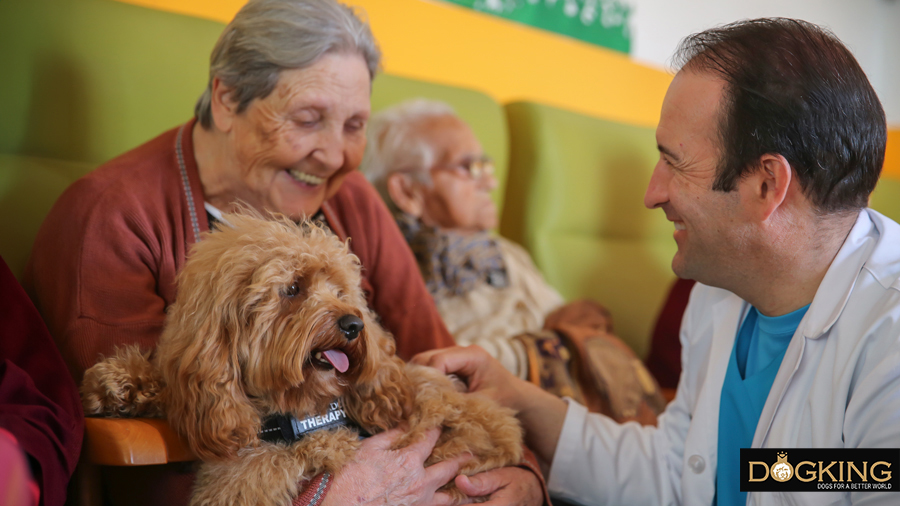Benefits of dogs for the elderly
Having a pet improves your physical and mental health
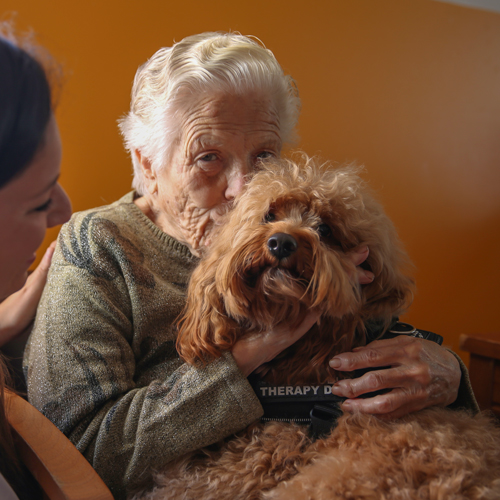
IS IT A GOOD IDEA FOR THE ELDERLY TO HAVE DOGS?
Reading time about 7 minutes
Numerous studies show that sharing life with a dog brings people many physical and psychological benefits. And this, of course, is no exception in the case of the elderly, who can greatly improve their quality of life thanks to having a furry companion by their side. Because of the health problems that can appear at this stage, the feeling of loneliness and social exclusion, the elderly are a vulnerable group, so living with a dog, an animal that stands out for its kindness and loyalty, is very positive for them.
However, there are certain aspects to take into account before introducing a dog into the life of an elderly person. Not all dogs are good companions for these elderly owners, but we will have to assess the breed and personality of the pet to ensure that it is a support and not a burden for the person. In this article we will tell you about the benefits of dogs for the elderly and which is the perfect dog for a person at this stage of life.
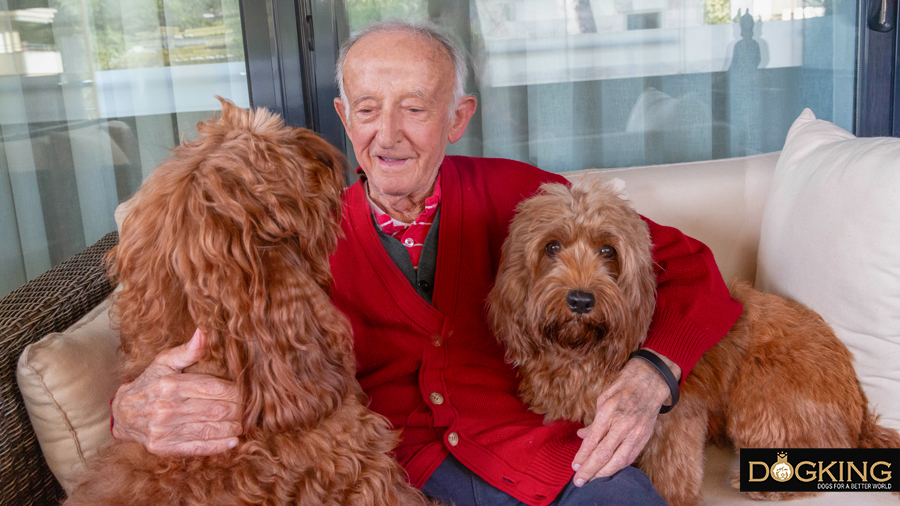
Table of contents
- 5 Positive effects of dogs on the elderly
- What is the perfect dog for an elderly person?
- Therapy dogs for the elderly
5 Positive effects of dogs on the elderly
Dogs need our love and care to be happy. Having one of these pets implies a great responsibility, so before leaving it in the care of an elderly person, we have to be sure that he or she has the necessary resources and abilities. As long as these requirements of mobility, independence and cognitive functionality are met in the elderly, they will be suitable to share their life with a puppy. These are some of the benefits for the elderly to own a dog.
1. Relieves loneliness
The elderly tend to be more exposed to loneliness. They are often widowed or divorced, so they live alone and, as their social life is reduced, they tend to spend much of their time at home. This may lead to isolation and depression, with very negative repercussions on their mental health. In this sense, having the companionship and constant loyalty of a dog can greatly improve the situation of these people. Having a pet relieves loneliness and sadness in the elderly, helping to combat stress and improving their mood.
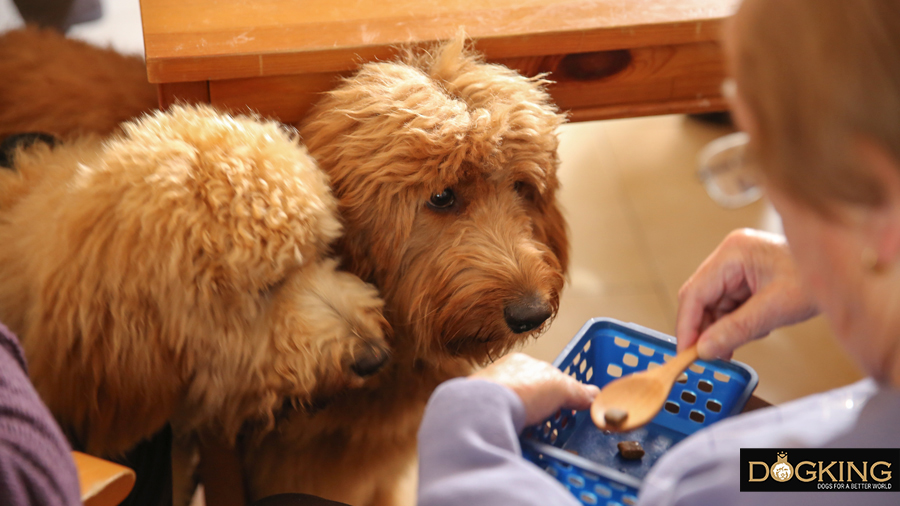
2. Facilitates physical exercise
Moderate and adapted physical exercise is very beneficial at this stage of life. Owning a dog requires taking it for a walk at least twice a day, a perfect pretext to motivate the elderly to go out and walk. This physical activity helps them to avoid obesity, arthrosis, cholesterol, hypertension and triglycerides. It also improves their lung capacity and helps them release endorphins, making them feel more relaxed and happy.
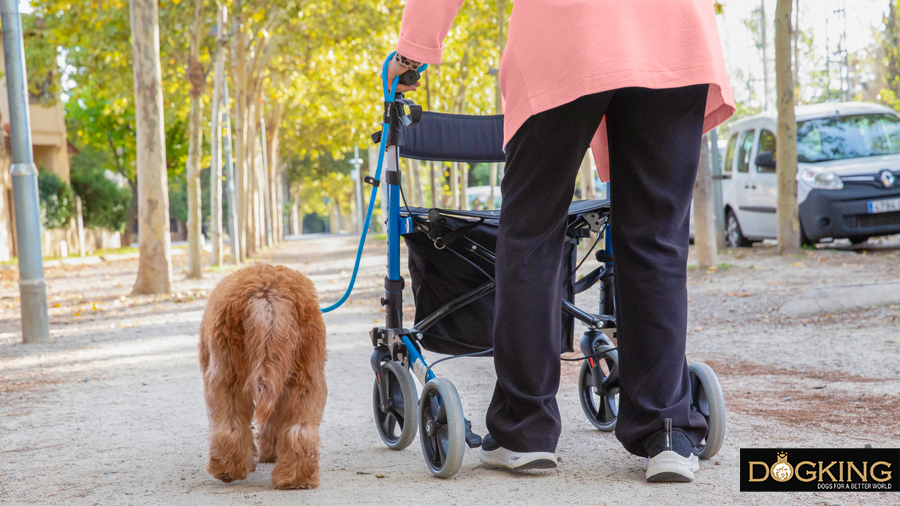
3. Promotes socialisation
Walks are also a good opportunity for elderly people with dogs to socialise, both with neighbours they meet along the way and with people who come to greet their pets or other dog owners. But not only that, in everyday life, having a furry companion allows people to interact, express themselves and, in short, feel less lonely and isolated.
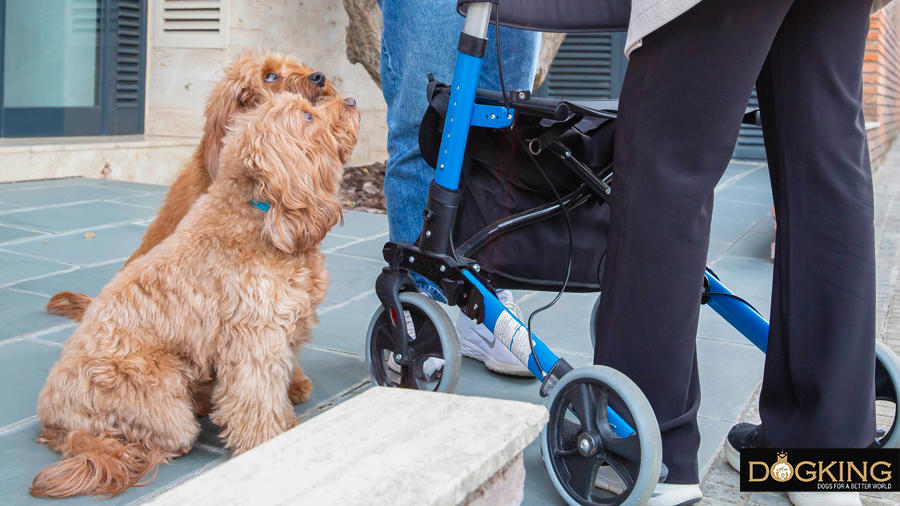
4. Improves self-esteem
According to several studies, elderly people who own dogs have higher levels of self-esteem. Sharing their lives with an animal that depends on their care and love makes them feel more useful. Without a job to occupy them, a diminished social life and, sometimes, few family relationships, the elderly may lose motivation and feel depressed. In this sense, caring for a living being offers them purpose, which is very beneficial for their self-perception and mental health.
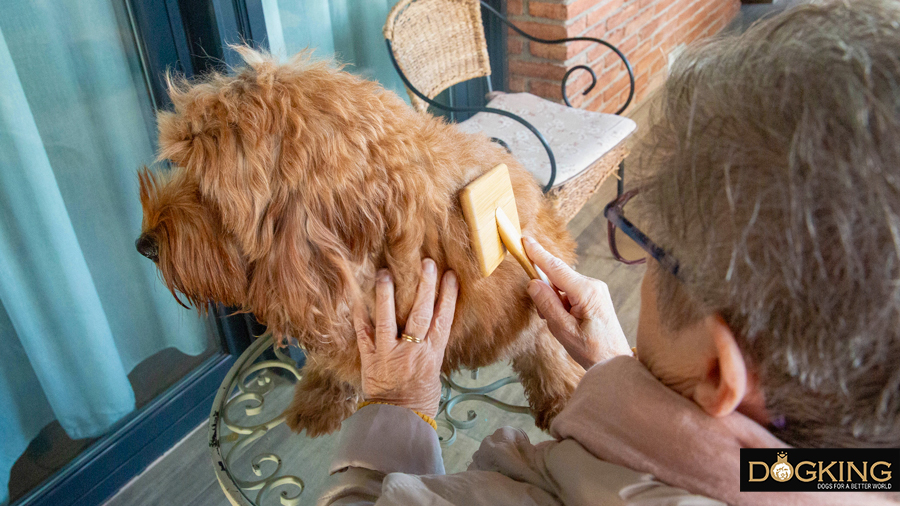
5. Meets their needs for affection
In many cases, the elderly see the satisfaction of their need for affection limited to a weekly visit. Day-to-day loneliness may be very hard, because although today there are many tools to communicate, they hardly replace the contact and affection transmitted in person. That's why it's a great idea for an elderly person to adopt a dog. It will become your best friend and faithful companion, and will never leave you alone. It will cover you with licks, caresses and will cuddle up with you to sleep. All these moments are very nice and positive for anyone, but for an elderly person who deals with loneliness every day, it really may mean the world.
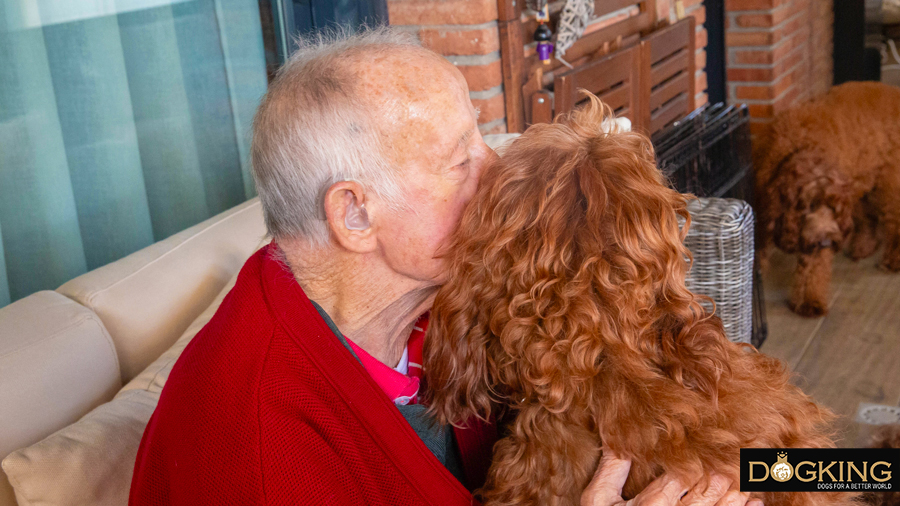
What is the perfect dog for an elderly person?
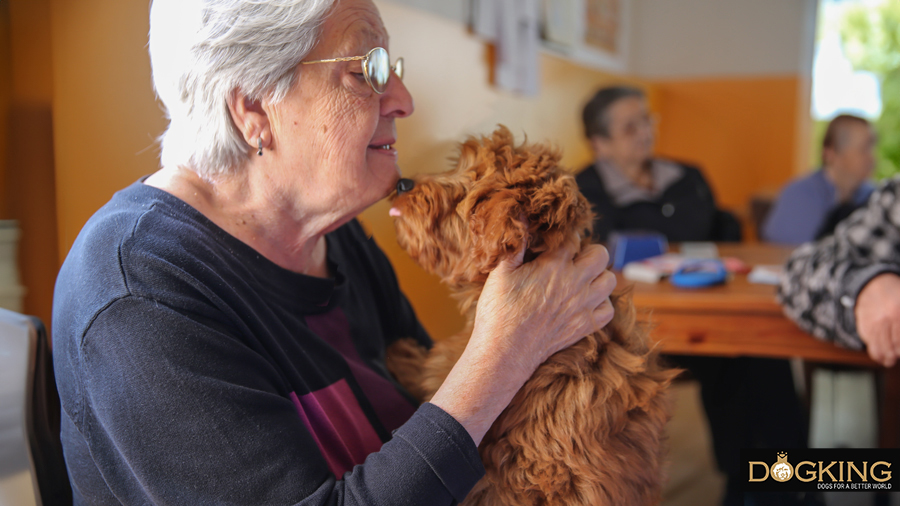
- Good health. All furry dogs deserve the opportunity for veterinary assistance, care and love. However, it isn't a good idea to leave a chronically ill dog in the care of an elderly person. The elderly have enough to do with doctor's appointments and medication without the added stress of caring for their pet's delicate health.
- Calm character. Some dogs, especially those of large size, need to burn a lot of energy. The elderly usually have a quiet lifestyle, so it is preferable to avoid these hyperactive pets and opt for calm dogs that require moderate exercise.
- Socialisation. Previously socialised dogs are the best companions for the elderly, as they get on well with other dogs and people, and don't tend to bark or become frightened in unfamiliar situations. This will make it much easier to get along with the elderly, who no longer have so much energy to deal with the socialisation of a furry dog, a process that requires great dedication and commitment.
- Training. An elderly person will rarely have the energy and demand needed to train a puppy, so it is ideal to choose dogs that are fully trained, at least in the basic signals (such as "sit", "stay" or "come here"). This will greatly improve the relationship between the person and the dog, as it won't add stress to daily life with attitudes such as pulling on the leash, chewing things, etc.
- A suitable size. In general, small dogs are easier to handle, but more important is the character of the animal, as there are medium-sized or even large dogs that have a calm character. For example, the Australian Cobberdog is a very adaptable and easy-going dog, whether small, medium or large. This animal enjoys the company of people very much, but is also independent and relaxed. In addition, it is hypoallergenic and doesn't shed hair, making housework much easier.
Therapy dogs for the elderly
